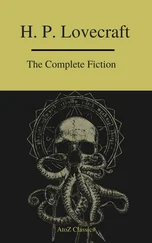(3) And now, let us go a little deeper. The manager is going to put in new machinery: before Christ has finished with Miss Bates, she is going to be very ‘nice’ indeed. But if we left it at that, it would sound as though Christ’s only aim was to pull Miss Bates up to the same level on which Dick had been all along. We have been talking, in fact, as if Dick were all right; as if Christianity was something nasty people needed and nice ones could afford to do without; and as if niceness was all that God demanded. But this would be a fatal mistake. The truth is that in God’s eyes Dick Firkin needs ‘saving’ every bit as much as Miss Bates. In one sense (I will explain what sense in a moment) niceness hardly comes into the question.
You cannot expect God to look at Dick’s placid temper and friendly disposition exactly as we do. They result from natural causes which God Himself creates. Being merely temperamental, they will all disappear if Dick’s digestion alters. The niceness, in fact, is God’s gift to Dick, not Dick’s gift to God. In the same way, God has allowed natural causes, working in a world spoiled by centuries of sin, to produce in Miss Bates the narrow mind and jangled nerves which account for most of her nastiness. He intends, in His own good time, to set that part of her right. But that is not, for God, the critical part of the business. It presents no difficulties. It is not what He is anxious about. What He is watching and waiting and working for is something that is not easy even for God, because, from the nature of the case, even He cannot produce it by a mere act of power. He is waiting and watching for it both in Miss Bates and in Dick Firkin. It is something they can freely give Him or freely refuse to Him. Will they, or will they not, turn to Him and thus fulfil the only purpose for which they were created? Their free will is trembling inside them like the needle of a compass. But this is a needle that can choose. It can point to its true North; but it need not. Will the needle swing round, and settle, and point to God?
He can help it to do so. He cannot force it. He cannot, so to speak, put out His own hand and pull it into the right position, for then it would not be free will any more. Will it point North? That is the question on which all hangs. Will Miss Bates and Dick offer their natures to God? The question whether the natures they offer or withhold are, at that moment, nice or nasty ones, is of secondary importance. God can see to that part of the problem.
Do not misunderstand me. Of course God regards a nasty nature as a bad and deplorable thing. And, of course, He regards a nice nature as a good thing—good like bread, or sunshine, or water. But these are the good things which He gives and we receive. He created Dick’s sound nerves and good digestion, and there is plenty more where they came from. It costs God nothing, so far as we know, to create nice things: but to convert rebellious wills cost His crucifixion. And because they are wills they can—in nice people just as much as in nasty ones—refuse His request. And then, because that niceness in Dick was merely part of nature, it will all go to pieces in the end. Nature herself will all pass away. Natural causes come together in Dick to make a pleasant psychological pattern, just as they come together in a sunset to make a pleasant pattern of colours. Presently (for that is how nature works) they will fall apart again and the pattern in both cases will disappear. Dick has had the chance to turn (or rather, to allow God to turn) that momentary pattern into the beauty of an eternal spirit: and he has not taken it.
There is a paradox here. As long as Dick does not turn to God, he thinks his niceness is his own, and just as long as he thinks that, it is not his own. It is when Dick realises that his niceness is not his own but a gift from God, and when he offers it back to God—it is just then that it begins to be really his own. For now Dick is beginning to take a share in his own creation. The only things we can keep are the things we freely give to God. What we try to keep for ourselves is just what we are sure to lose.
We must, therefore, not be surprised if we find among the Christians some people who are still nasty. There is even, when you come to think it over, a reason why nasty people might be expected to turn to Christ in greater numbers than nice ones. That was what people objected to about Christ during His life on earth: He seemed to attract ‘such awful people’. That is what people still object to and always will. Do you not see why? Christ said ‘Blessed are the poor’ and ‘How hard it is for the rich to enter the Kingdom,’ and no doubt He primarily meant the economically rich and economically poor. But do not His words also apply to another kind of riches and poverty? One of the dangers of having a lot of money is that you may be quite satisfied with the kinds of happiness money can give and so fail to realise your need for God. If everything seems to come simply by signing cheques, you may forget that you are at every moment totally dependent on God. Now quite plainly, natural gifts carry with them a similar danger. If you have sound nerves and intelligence and health and popularity and a good upbringing, you are likely to be quite satisfied with your character as it is. ‘Why drag God into it?’ you may ask. A certain level of good conduct comes fairly easily to you. You are not one of those wretched creatures who are always being tripped up by sex, or dipsomania, or nervousness, or bad temper. Everyone says you are a nice chap and (between ourselves) you agree with them. You are quite likely to believe that all this niceness is your own doing: and you may easily not feel the need for any better kind of goodness. Often people who have all these natural kinds of goodness cannot be brought to recognise their need for Christ at all until, one day, the natural goodness lets them down and their self-satisfaction is shattered. In other words, it is hard for those who are ‘rich’ in this sense to enter the Kingdom.
It is very different for the nasty people—the little, low, timid, warped, thin-blooded, lonely people, or the passionate, sensual, unbalanced people. If they make any attempt at goodness at all, they learn, in double quick time, that they need help. It is Christ or nothing for them. It is taking up the cross and following—or else despair. They are the lost sheep; He came specially to find them. They are (in one very real and terrible sense) the ‘poor’: He blessed them. They are the ‘awful set’ He goes about with—and of course the Pharisees say still, as they said from the first, ‘If there were anything in Christianity those people would not be Christians.’
There is either a warning or an encouragement here for every one of us. If you are a nice person—if virtue comes easily to you—beware! Much is expected from those to whom much is given. If you mistake for your own merits what are really God’s gifts to you through nature, and if you are contented with simply being nice, you are still a rebel: and all those gifts will only make your fall more terrible, your corruption more complicated, your bad example more disastrous. The Devil was an archangel once; his natural gifts were as far above yours as yours are above those of a chimpanzee.
But if you are a poor creature—poisoned by a wretched upbringing in some house full of vulgar jealousies and senseless quarrels—saddled, by no choice of your own, with some loathsome sexual perversion—nagged day in and day out by an inferiority complex that makes you snap at your best friends—do not despair. He knows all about it. You are one of the poor whom He blessed. He knows what a wretched machine you are trying to drive. Keep on. Do what you can. One day (perhaps in another world, but perhaps far sooner than that) He will fling it on the scrap-heap and give you a new one. And then you may astonish us all—not least yourself: for you have learned your driving in a hard school. (Some of the last will be first and some of the first will be last).
Читать дальше












